When did marriage begin?
Evidence suggests marriage is at least 4,300 years old
A free daily email with the biggest news stories of the day – and the best features from TheWeek.com
You are now subscribed
Your newsletter sign-up was successful
Humans have sought out relationships since the earliest days of Homo sapiens — but getting married? That's something our ancestors didn't have in mind. Marriage as an institution is likely only several thousand years old, according to historical evidence, making it just a small blip on humanity's 300,000-year timeline. And while marriage might seem a time-honored tradition, the idea of people spending their lives together in a legal union only emerged in recent centuries.
History may not repeat itself in this case, but it definitely appears to rhyme: Many of the latest marriage trends, like polyamory, throuples and "trad wives," were commonplace in the last few hundred years, and the current variations are really just new twists on old ideas. Even so, the notion that you'd put a ring on someone's finger simply because you love them is even newer than marriage itself.
How old is marriage as an institution?
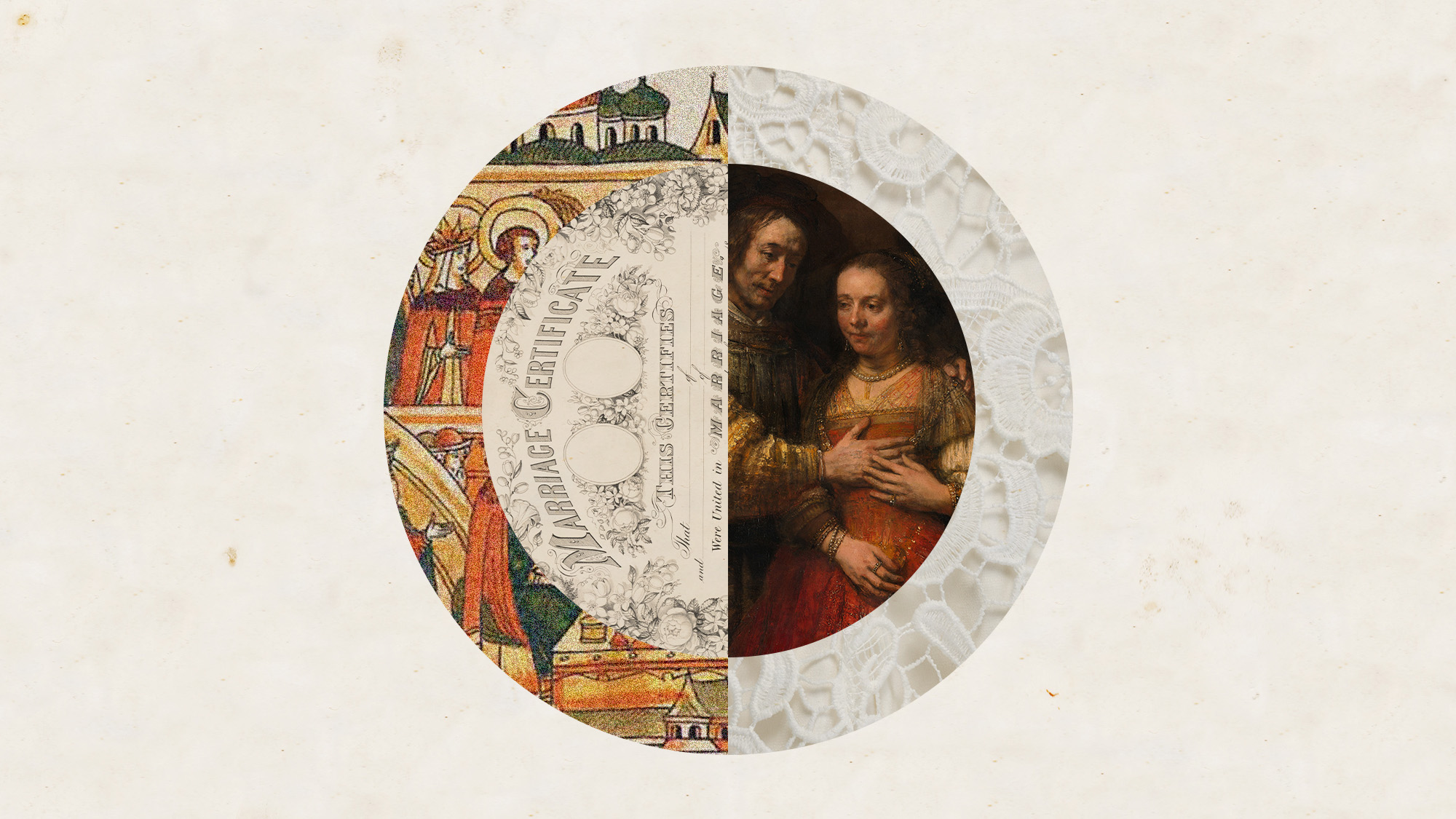
The best available evidence suggests that it's about 4,350 years old. For thousands of years before that, most anthropologists believe, families consisted of loosely organized groups of as many as 30 people, with several male leaders, multiple women shared between them, and children. As hunter-gatherers settled down into agrarian civilizations, society had a need for more stable arrangements.
The Week
Escape your echo chamber. Get the facts behind the news, plus analysis from multiple perspectives.

Sign up for The Week's Free Newsletters
From our morning news briefing to a weekly Good News Newsletter, get the best of The Week delivered directly to your inbox.
From our morning news briefing to a weekly Good News Newsletter, get the best of The Week delivered directly to your inbox.
The first recorded evidence of marriage ceremonies uniting one woman and one man dates from about 2350 B.C., in Mesopotamia. Over the next several hundred years, marriage evolved into a widespread institution embraced by the ancient Hebrews, Greeks and Romans. But back then, marriage had little to do with love or with religion.
If marriage wasn't about love, what was it about?
Marriage's primary purpose was to bind women to men, and thus guarantee that a man's children were truly his biological heirs. This was particularly important in patriarchal societies where these heirs would often inherit leadership roles. Through marriage, a woman became a man's property. In the betrothal ceremony of ancient Greece, a father would hand over his daughter with these words: "I pledge my daughter for the purpose of producing legitimate offspring." And in ancient Rome, marriage was seen as a "practical means to a sensible end" in order to transfer "property, wealth, rights, responsibilities and alliances" through generations, said Wedaways Travel.
Among the ancient Hebrews, men were free to take several wives; married Greek and Roman men were free to satisfy their sexual urges with concubines, prostitutes and even teenage male lovers, while their wives were required to stay home and tend to the household. If wives failed to produce offspring, their husbands could give them back and marry someone else.
🌹Take the marriage quiz
When did religion become involved?
As the Christian church became a powerful institution in Europe, the blessings of a priest became increasingly common. Through the years, "there have been differing views about whether weddings are primarily religious or secular events," said the Christian-based Nelson University. For "much of the early Christian Era, the Church stayed out of weddings and let the state handle the union of man and woman." But by the eighth century, Christian churches started to perform weddings, and the ritual became widely accepted as a sacrament.
A free daily email with the biggest news stories of the day – and the best features from TheWeek.com
While some religions may view marriage differently, they often share similar characteristics. Marriage is "highly valued in Jewish culture and the wedding is one of the most important events in the life cycle," according to the University of Chicago, despite the fact that "no wedding ceremony is described in the Torah." But the "institution of marriage began with Adam and Eve," said ReformJudaism.org. Likewise, marriage in Islam is an "essential pillar of human life, as humans are the masters of creatures and the most honorable of them," said the Imam Mahdi Association of Marjaeya. A successful Muslim marriage is a "purposeful one and not one based on emotions and fleeting desires."
Beyond religion, varying cultures also have unique customs when it comes to marriage. In Scotland, a tradition called the Blackening occurs when "friends and family seize the engaged couple and gunk them with anything from rotten eggs and fish guts to manure and molasses," said the BBC. And in certain Chinese provinces, there is a "ceremonial practice involving sobbing and singing by the bride and her family" where the bride "may cry intermittently," with her tears "seen as an expression of gratitude," said the South China Morning Post.
Many options for non-religious weddings have become popular, including a "unity ceremony" that can "symbolize the union of two lives into one," said the Universal Life Church. Other secular ceremonies often include touches that "encourage the couple to make their ceremony unique and personal," with aspects like self-written vows and ring-exchange alternatives.
When did the state get involved?
The shift from "common law" marriages — where two people (or their families) simply declared they were married — to legal marriage began in the church, with the calling of "banns," or public announcements before the marriage in the 13th century. "By the end of the Middle Ages, written marriage contracts had become a regular part of the marriage process," said Jessica Levey at American Marriage Ministries.
Marriage licenses arrived in the U.S. in the colonial era — Massachusetts started recording marriages at the local level in 1639 and statewide two years later, according to the University of Massachusetts Amherst. At the time, the husband's dominance was officially recognized under a legal doctrine called "coverture," under which the new bride's identity was absorbed into his. Great Britain introduced non-religion civil marriage in the Marriage Act of 1836. By 1929, all U.S. states had laws on marriage licenses. Marriage became a federal issue with the introduction of the married-couple income tax filing in 1913.
When did love enter the picture?
As previously mentioned, marriage was viewed in ancient times simply as a binding contract between a man and woman. But in the 18th century, society "encouraged young people to select their marriage partners based on their romantic attachments," said the National Women's History Museum.
This was a marked difference from prior centuries, especially in colonial America, when "parents viewed marriage as a business deal more than a relationship between two people," said Samson Historical. This was largely due to laws brought over from the U.K., which stated that a "young woman was under the control and influence of her father" until marriage. Arranged courtships were commonplace back then, and couples would "often be permitted social visits to determine their compatibility."
While the institution of marriage has evolved, weddings themselves have also continued to transform in the late 20th and early 21st centuries, with various "wedding trends" and specialty events becoming ubiquitous. While destination weddings have always existed, they have been shooting up in popularity of late, with the desire to jet off a foreign land in order to wed becoming increasingly commonplace. In 2023, nearly "one in five couples who married had a destination wedding," said The Cut, and this trend is expected to continue in the coming years.
How did this tradition change?
In 1920, American women won the right to vote, transforming marriage into a union of two full citizens, and in the following decade a sexual revolution introduced the idea that marriage should be a vehicle for mutual desire and satisfaction. In the 1960s, "we decided marriage was a right," not a guarded (and segregated) privilege, and "in the 1970s, we began to rearrange marriage laws" accordingly, marriage historian Stephanie Coontz said to Connecticut Public Radio. Between 1974 and 1993, U.S. states finally recognized — and banned — marital rape, an idea inconceivable when the husband "owned" his wife's sexuality. But there are still aspects of marriage that remain problematic in the U.S.; this notably includes child marriage, which is "currently legal in 35 states," and "nearly 300,000 children were married in the U.S. between 2000 and 2018," said the gender equality NGO Equality Now.
Marriage has taken even more of a swing in the last 50 years, particularly when it comes to the wider acceptance of same sex marriages. While the LGBTQ+ community has been pushing for marriage equality for years, it was only in 2001 that the Netherlands became the first country in the world to legalize same sex weddings. Other nations have followed, and particularly in the United States, people "gave our all to ensure every person, regardless of whom they love, is recognized equally under the law," said Humans Rights Watch. The "moment for full marriage equality [in the U.S.] finally arrived on June 26, 2015," when the Supreme Court "granted same-sex couples in all 50 states the right to full, equal recognition under the law."
But while same-sex marriage has become significantly more accepted globally, there are many regions where it is still considered taboo. Even in nations that have legalized same-sex unions, something that "stayed common even after the legal recognition of same-sex marriage was the criticisms and oppositions faced due to the ethnic institutions, social norms and stereotypes," said Sreyasi Bhattacharya at India's Heritage Law College. This "shows that in society, even after the legal recognition of same-sex, people feel uncomfortable to answer or ignore the topic." As a result, the "expansion of LGBTQ+ rights is uneven around the world," including people's rights to get married.
The age at which people get married has also continued to evolve over the decades. In 2025, the "average age of marriage in the U.S. is 32," said marriage website The Knot. This number has largely held steady over the past few years, but could shift as Gen Z begins to enter the marriage age range; it is "too early to say whether this generation will significantly alter the average age of getting married in the U.S."
The concept of getting married in your early 30s is a far cry from prior generations. In 1950, the median age for a man to get married was 22, while for a woman it was 20, said the online data site Infoplease. There is a large distinction even when getting closer to the turn of the century; in 1999, the median age for marriage was 26 for men and 25 for women.
What other kinds of marriages are there?
As marriage has evolved, the traditional definitions have changed along with it, and many trends now buck the social norms that once dominated. One of the most notable changes is the rise of "lavender marriages," which occur when a heterosexual person marries someone from the LGBTQ+ community. These were originally "formed as a way of concealing same-sex attraction in a society where being openly queer could mean social ostracism, career ruin or even criminalization," Gio Dolcecore, an assistant professor of social work at Mount Royal University, said at The Conservation. But as modern LGBTQ+ rights have come under attack, there has been a surge in lavender marriages that “reflects deeper shifts in how people view relationships," said DW.
And what if you just want to get married to your platonic pal? Now you can, as "friendship marriages" have also become popular, most notably in China. This process involves two people getting married who may not be romantically involved, but who become spouses based on "shared values and interests," said the South China Morning Post. For people who want to "escape family pressure and societal prejudice," these types of unions may be the answer. A friendship marriage "helps avoid gossip," 33-year-old Chloe told the Post.
How expensive is marriage?
While early marriages were often simple ceremonies involving families and friends, modern marriage and wedding traditions have helped the costs balloon. Now, some weddings may cost hundreds of thousands of dollars; the current average cost for a wedding in the U.S. is $33,000, according to The Knot, and the "average cost per guest is $284." This guest count often makes a significant difference; couples who spent under $15,000 for their wedding “invited an average of 89 guests,” while weddings that cost $15,000 to $40,000 saw guest counts averaging 118 people.
And if you want to get married overseas? Be prepared to pay an even prettier penny; a destination wedding can “range from $350 to $1,000 per guest, depending on location on style,” said Brides.com. Using The Knot’s average of 118 people for a high guest count wedding, even the low end of $350 per person still comes out to a $41,300 wedding; spending $1,000 per person may easily breach the six-figure category. Couples “could have a destination wedding in Europe for $30,000 as easily as you [could have one] for $300,000," Kay Northrup, the founder of destination wedding planner Kay Northrup Events, said to Brides.com.
What are some other unusual wedding traditions?
Beyond religion, many cultures around the world have unique customs that are specifically honored at weddings. In Germany, for example, some newlyweds "indulge in a tradition known as Baumstamm Sagen, where the couple is expected to saw a log into two pieces," said wedding magazine KHush. This is supposed to symbolize the couple's strength in remaining together through hardship.
In some areas of Romania, meanwhile, you may have trouble finding the bride before the wedding, as it is a "tradition for the bride to be 'kidnapped' by her friends and family," said KHush. As part of a role-playing scenario, the groom must pay a ransom to get her back, though this could be as simple as "romantic gestures or filling her glass with champagne." Even more extreme: The Tidoing tribe in Borneo has a tradition wherein newlyweds must stay inside their home for three days without using the bathroom to symbolize their martial purity.
Peter has worked as a news and culture writer and editor at The Week since the site's launch in 2008. He covers politics, world affairs, religion and cultural currents. His journalism career began as a copy editor at a financial newswire and has included editorial positions at The New York Times Magazine, Facts on File, and Oregon State University.
-
 Bad Bunny’s Super Bowl: A win for unity
Bad Bunny’s Super Bowl: A win for unityFeature The global superstar's halftime show was a celebration for everyone to enjoy
-
 Book reviews: ‘Bonfire of the Murdochs’ and ‘The Typewriter and the Guillotine’
Book reviews: ‘Bonfire of the Murdochs’ and ‘The Typewriter and the Guillotine’Feature New insights into the Murdoch family’s turmoil and a renowned journalist’s time in pre-World War II Paris
-
 Witkoff and Kushner tackle Ukraine, Iran in Geneva
Witkoff and Kushner tackle Ukraine, Iran in GenevaSpeed Read Steve Witkoff and Jared Kushner held negotiations aimed at securing a nuclear deal with Iran and an end to Russia’s war in Ukraine
-
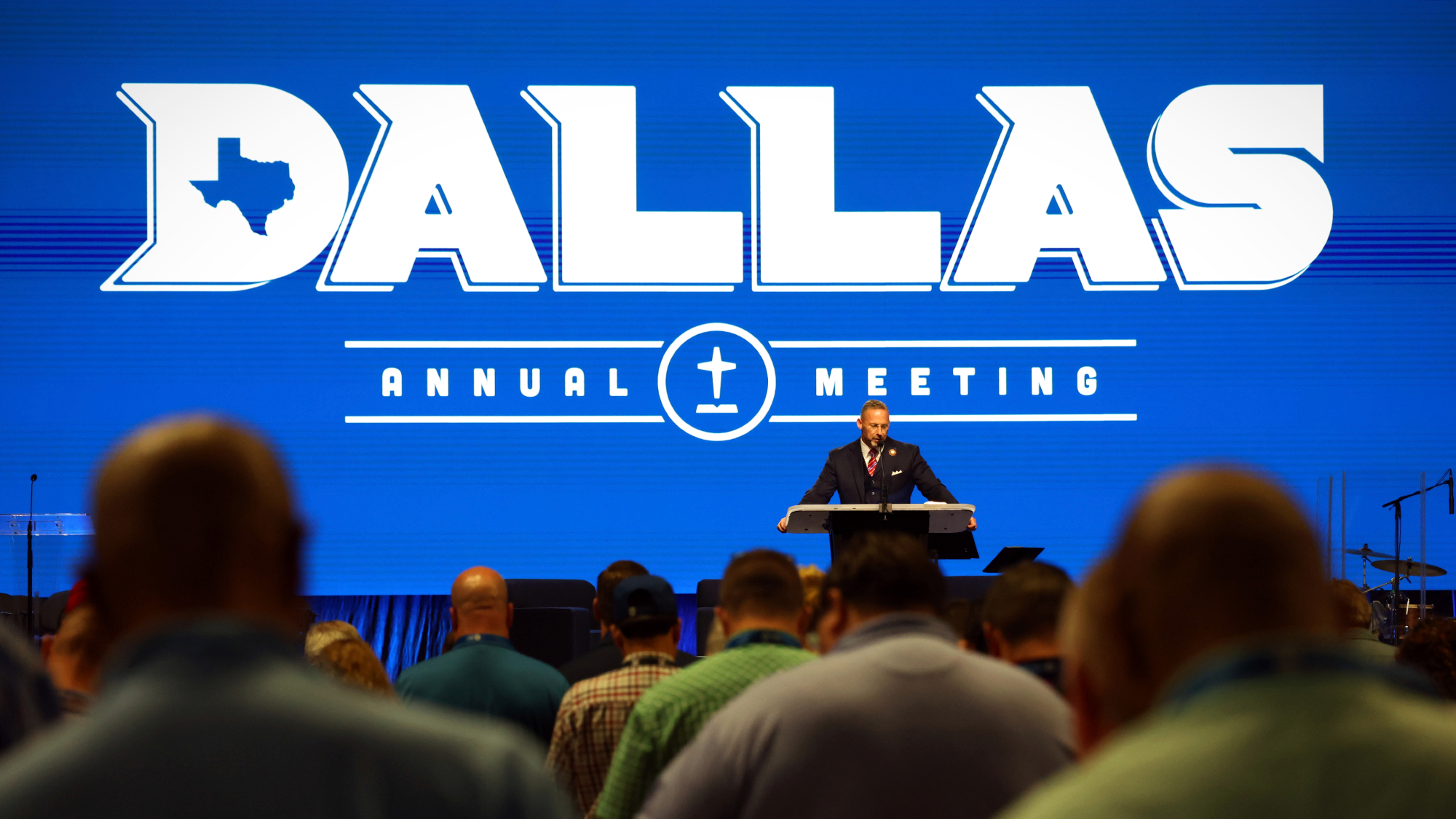 Southern Baptists endorse gay marriage ban
Southern Baptists endorse gay marriage banSpeed Read The largest US Protestant denomination voted to ban same-sex marriage and pornography at their national meeting
-
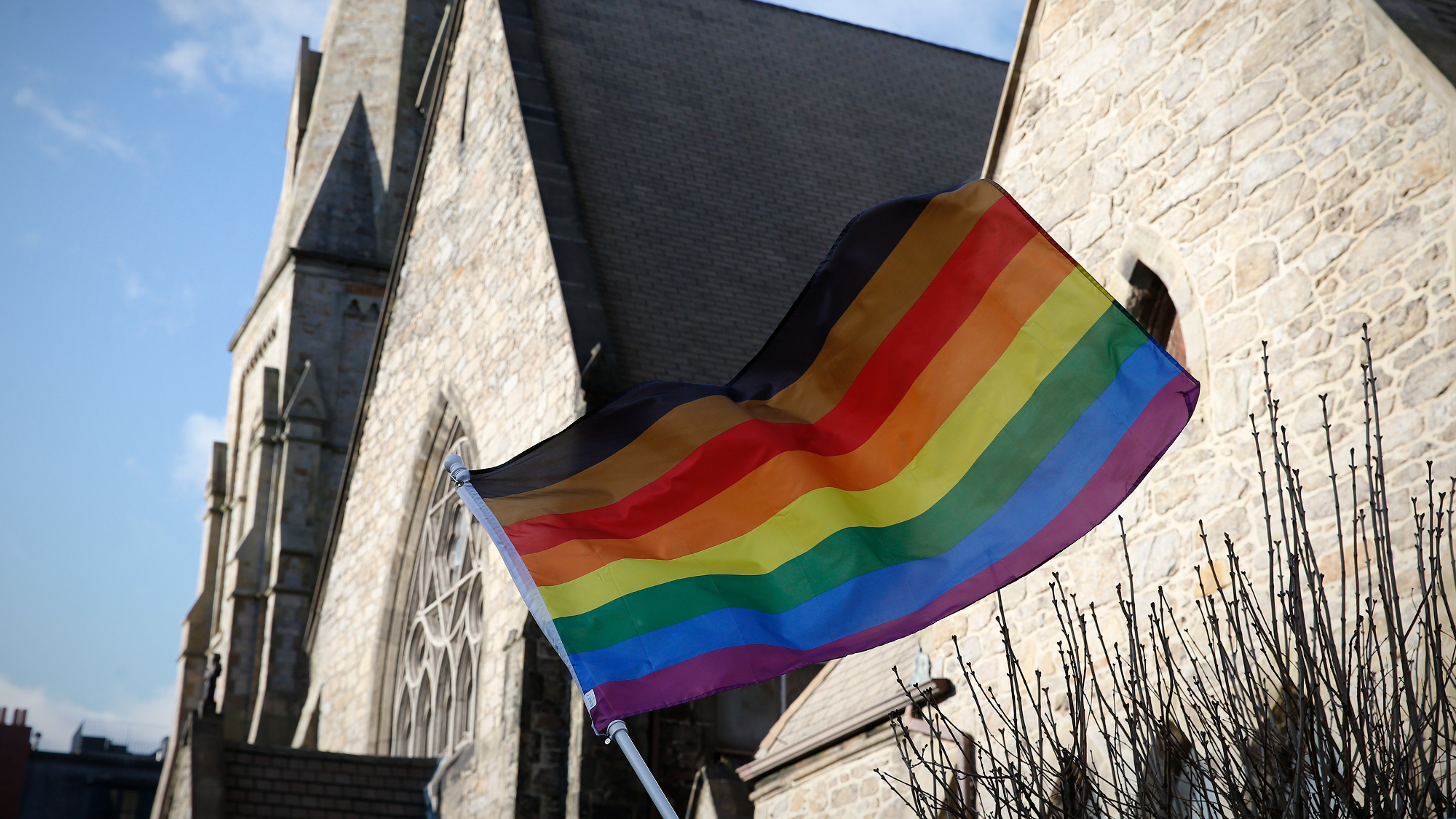 United Methodists overturn ban on LGBTQ+ clergy
United Methodists overturn ban on LGBTQ+ clergySpeed Read The church also voted to reverse the ban on same-sex weddings
-
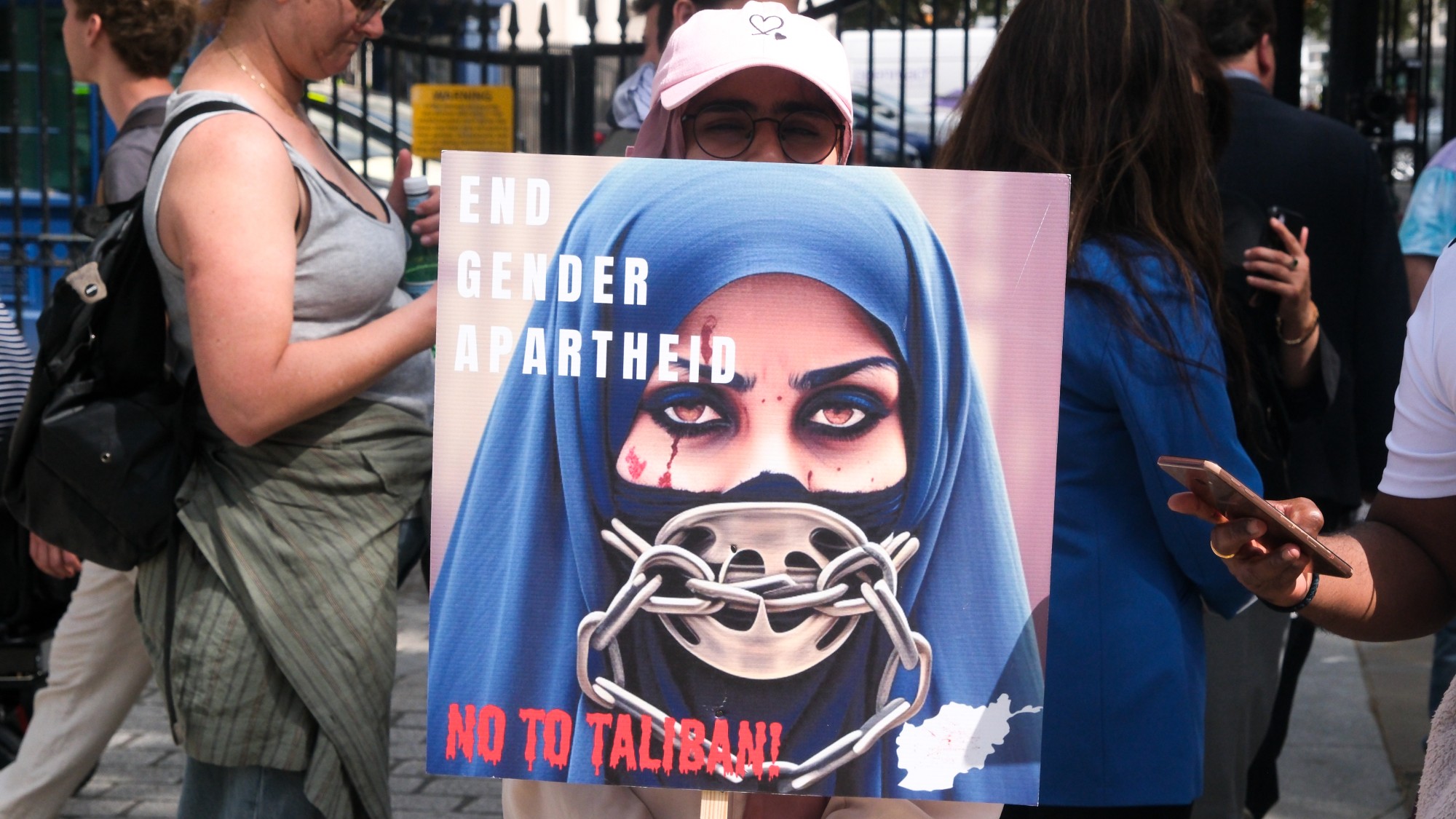 The Taliban's ongoing attack on women's rights
The Taliban's ongoing attack on women's rightsIn depth The group has sparked humanitarian concerns
-
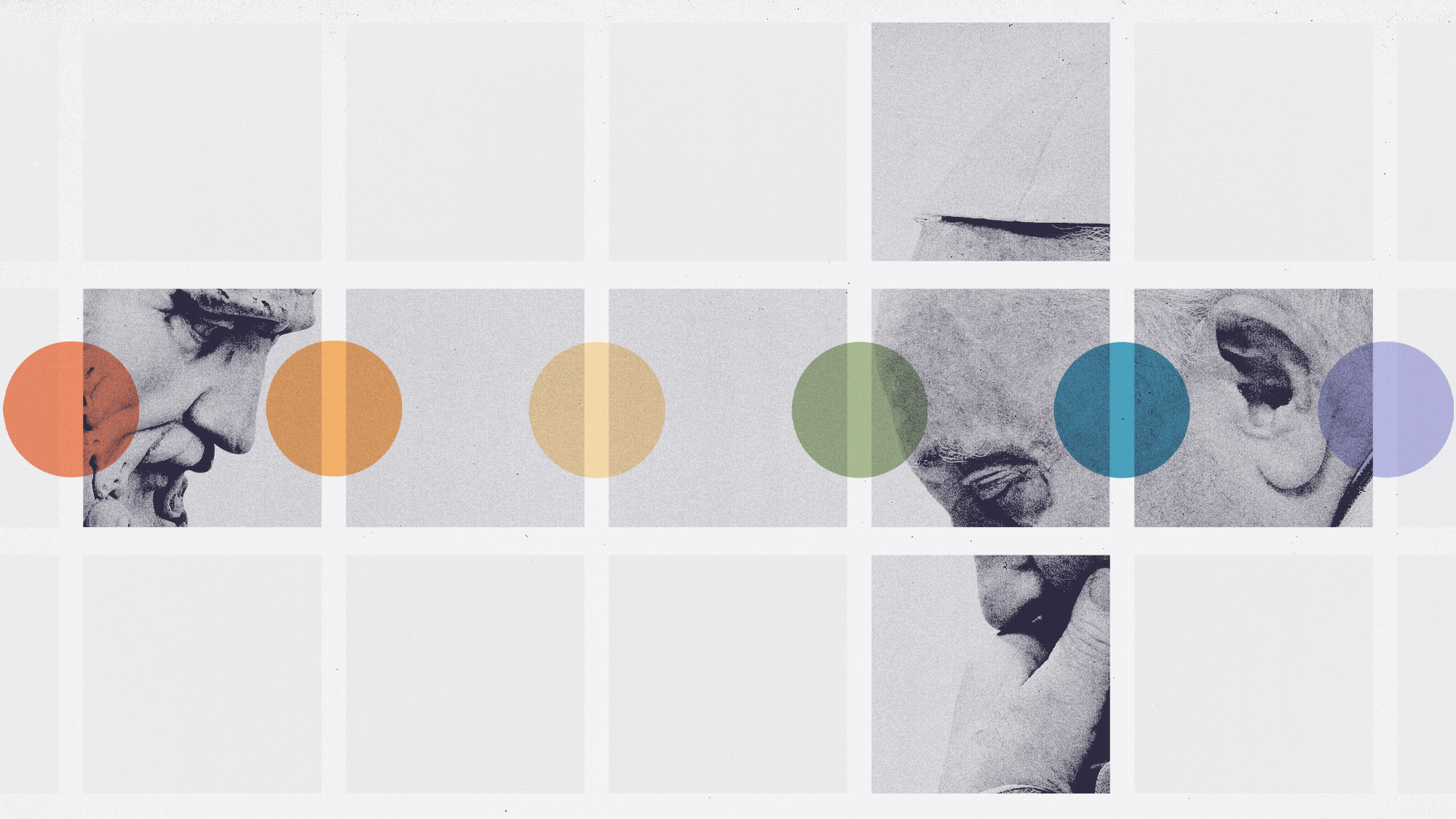 The Vatican's same-sex blessing approval: What is Pope Francis doing?
The Vatican's same-sex blessing approval: What is Pope Francis doing?Today's Big Question The pope rocked the Catholic world by giving the green light to blessing same-sex couples, with plenty of caveats
-
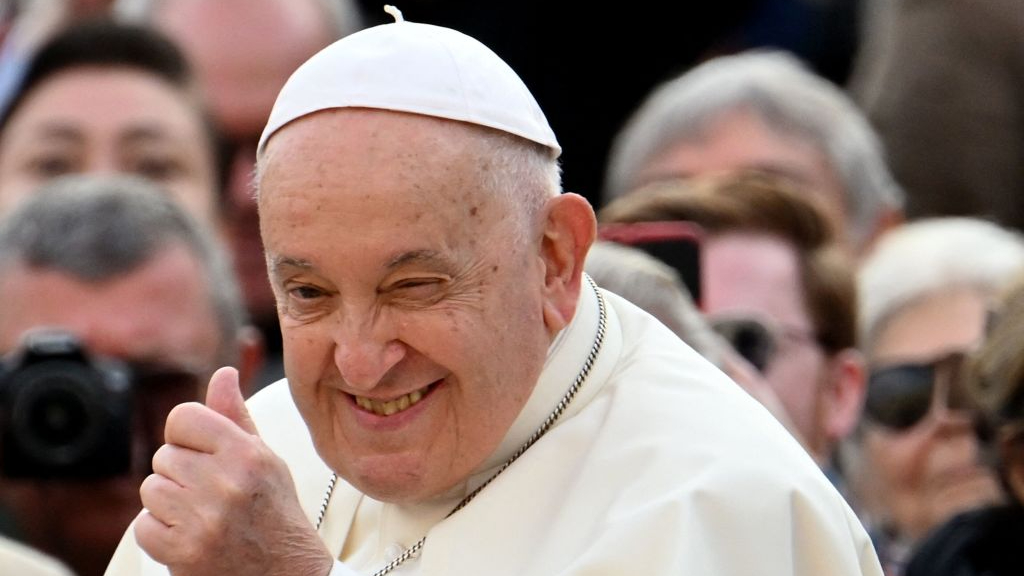 The Vatican half-embraces transgender Catholic godparents, wedding witnesses
The Vatican half-embraces transgender Catholic godparents, wedding witnessesUnder the Radar Pope Francis signed off on a series of clarifications about the roles LGBTQ Catholics can play in the church, with ample theological fine print
-
 The Catholic Church's latest scandals in the US
The Catholic Church's latest scandals in the USIn Depth America's largest Christian denomination continues to cause controversy
-
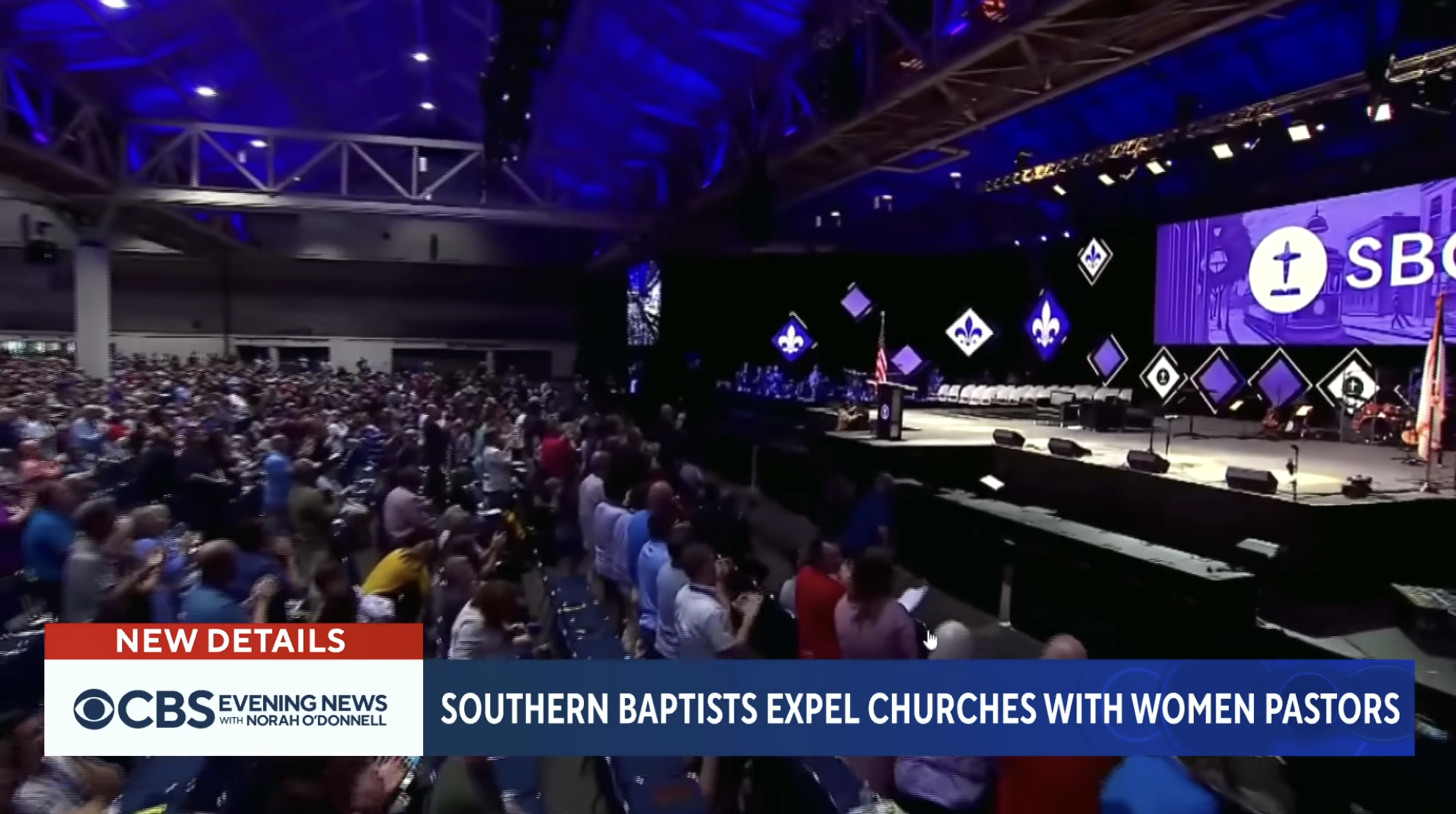 Southern Baptists expel Saddleback, 2nd church over female pastors, approve further clampdown
Southern Baptists expel Saddleback, 2nd church over female pastors, approve further clampdownSpeed Read
-
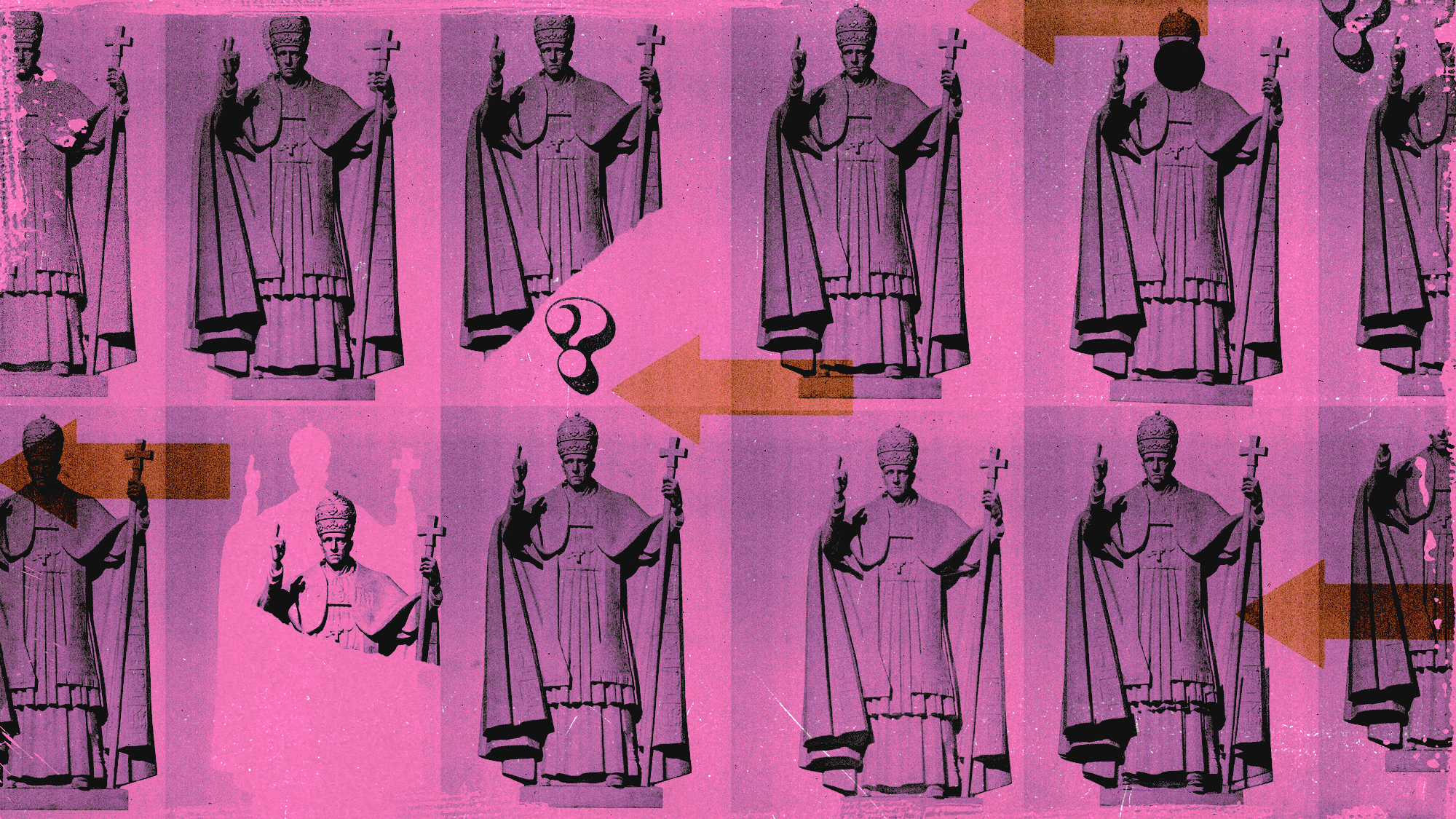 Who will be the next pope – and how does the conclave work?
Who will be the next pope – and how does the conclave work?In Depth Majority of Catholic cardinals preparing to vote for new pontiff have no experience of conclave and are 'less predictable than ever before'


